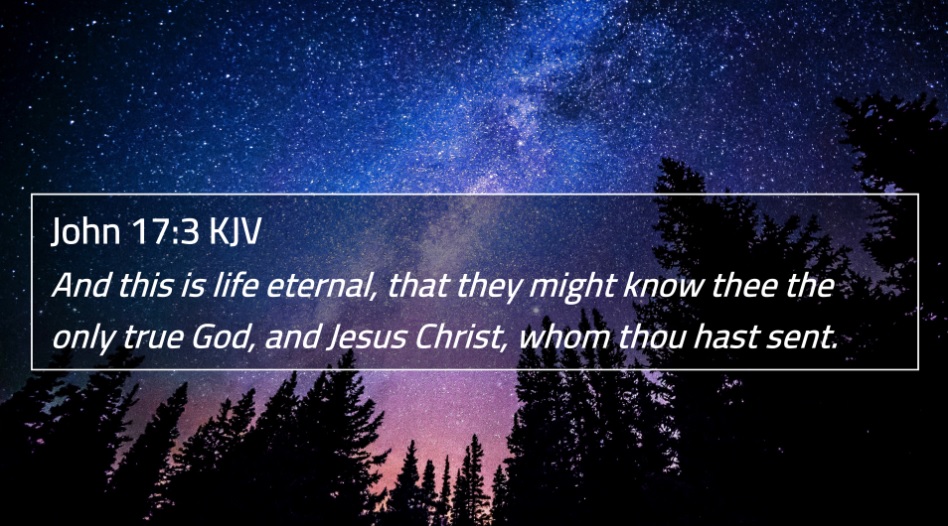“Go therefore and make disciples of all the nations…teaching them to observe all that I commanded you; and lo, I am with you always, even to the end of the age” (Matthew 28:19-20, NASB).
——————–
Contents:
1) God of Wonders (Tony Mauck)
2) Murphy’s Law and Eternity (Greg Gwin)
3) God’s Love for Us (video sermon, Tom Edwards)
——————–

-1-
God of Wonders
Tony Mauck
Habakkuk decries the evil running amuck among the Lord’s people and asks God to act. He could not have anticipated God’s reply, “Look among the nations! Observe! Be astonished! Wonder! Because I am doing something in your days—you would not believe if you were told” (Hab. 1:5). God further reveals that the Babylonians would serve as God’s instrument to judge His wayward people. Habakkuk was not particularly excited about the news and it only raised more questions in his mind.
The last statement of verse 5 is worthy of much meditation as it summarizes the ways and activity of God. Our God is a God of Wonders! “Oh, the depth of the riches both of the wisdom and knowledge of God! How unsearchable are His judgments and unfathomable His ways” (Rom. 11:33). While we may greatly struggle to fully process the depths of this statement about God, such lofty thoughts of Him should be often frequented in our minds.
Three important thoughts flow out of God’s words to Habakkuk: 1) God’s activity astonishes; 2) God’s activity is not thwarted by powerful men; 3) This same God is still active today.
The whole Bible story continually reveals the grandiose nature of God’s doings. Anticipating the role of a suffering Savior in man’s redemption, the inspired psalmist writes, “The stone which the builders rejected has become the chief corner stone. This is the Lord’s doing; it is marvelous in our eyes. This is the day which the Lord has made; let us rejoice and be glad in it” (Psa. 118:22-24).
Extraordinary signs demonstrate God’s limitless ability. He makes an axe head float. Jesus walks on water. He feeds thousands with a couple of fish and a few loaves of bread while the leftover fragments exceed the original amount of food. While astonishing, such acts are easily consistent with a God whose “understanding is infinite” and One who is “abundant in strength.” After all, “He counts the number of the stars; He gives names to all of them” (Psa. 147:4-5).
Particularly impressive to me is the day of which it is said, “And there was no day like that before it or after it, when the Lord listened to the voice of a man; for the Lord fought for Israel” (Josh. 10:14). Following the dramatic victory at Jericho and ultimate victory at Ai, the Amorite kings and a quite formidable army unite to attack Gibeon, who had made a life-saving alliance with Israel. God informs Joshua, “Do not fear them, for I have given them into your hands, not one of them shall stand before you” (Josh. 10:8). Joshua and his army march all night and suddenly fall upon their foes. The Lord confounds the Amorites and pummels them with hailstones as they flee. Joshua needs more daylight to finish them off and pleads, “O, sun stand still at Gibeon, and O moon in the valley of Aijalon” (Josh. 10:12). Both the sun and moon stop, “And the sun stopped in the middle of the sky and did not hasten to go down for about a whole day” (Josh. 10:13).
Some claim, “Impossible!” We know what Joshua did not. It’s not the sun moving around the earth but the earth’s rotation that gives the appearance of the sun moving from the east to west. We are told by skeptics, if the sun stood still for “about a whole day,” the effects would be cataclysmic. But remember, this is the Creator we’re talking about. Nothing is too difficult for Him.
When God speaks to Habakkuk of His wonder He is about to perform, nothing miraculous is under consideration. Assyria, the present world power, is going to eventually relinquish world dominance to the Babylonians and God is going to use them to judge and teach His people in Judah as He had used the Assyrians— “the rod of My anger”—to punish Israel (Isa. 10:5).
A careful reading of the last several chapters in Daniel causes one to marvel at the activity in the spiritual realm that is behind what is playing out in the kingdoms of men. Government leaders rarely see themselves for what they really are, nothing more than God’s pawns to accomplish His purposes (cf. Isaiah 40:12-25). Even the Babylonians did not see it, “…they whose strength is their god” (Hab. 1:11).
No elected official or government in this whole world is capable of overthrowing what God has done or is planning to do. Certain freedoms might be restricted that we might presently enjoy, but God’s salvation will still be provided to those who seek it. His spiritual kingdom will continue on (cf. Dan. 2:44). History will culminate the way God intends and at the time He decides. Only due to God’s patience does the world still exist to this time (2 Pet. 3:9, 15).
The appropriate reaction to the God of wonders is to fully submit to His purposes. Find your purpose in His great purposes. No greater purpose for our lives can be pursued. If you think about it, how do most people spend their days? They work, accumulate things, improve their circumstances, enjoy family, seek fun and then ultimately someone else ends up with all of their stuff and their position. Eventually, they become just a footnote in history and most are forgotten. How much do you know about your great-great-grandparents?
While our deeds in human history may not be remembered by future generations, involvement in God’s things contains far-reaching and eternal implications…the destiny of souls! Can anything in this world exceed being “a vessel for honor, sanctified, useful to the Master, prepared for every good work” (2 Tim. 2:21)? People get excited about a lot of different things that have a temporal purpose and a temporal reward. We stack those things back to back to back and they become the stuff of life. But those things must be secondary to our greater spiritual purpose and pursued in light of it or they become a snare to our souls. Ultimately, only one thing matters, “…rejoice that your names are recorded in heaven” (Luke 17:20). And God will not forget the things we have done to promote His cause in the world (Heb. 6:10).
Christians find liberation from the anxieties that plague so many. God equips us to face and endure the crippling pain and troubles associated with life in this world. We trust in the God of wonders! We know “Him who is able to do exceeding abundantly beyond all that we ask or think…to Him be the glory in the church and in Christ Jesus to all generations forever and ever. Amen” (Eph. 3:20-21).
— Via Faithful Sayings, Volume 20, Issue 35 (September 2, 2018)
——————–

-2-
Murphy’s Law and Eternity
Greg Gwin
Have you heard of Murphy’s Law? There are many versions, but the basic notion of Murphy’s Law is this: “If anything can go wrong, it will go wrong.” Any Saturday mechanic, weekend repairman, or home owning handyman will have to admit that this Murphy, whoever he was, had pretty good insight. Skinned knuckles, stripped threads, broken parts, missing pieces, and malfunctioning equipment are a continuing testimony to the apparent accuracy of Murphy’s pessimistic view.
However, there’s one realm where this ‘law’ is clearly not true. Paul wrote, “And we know that all things work together for good to them that love God” (Romans 8:28). This is a wonderful promise, and a great blessing. But note; it is only for “them that love God,” and we know that love for God must be demonstrated by humble obedience. “For this is the love of God, that we keep his commandments” (1 John 5:3). Those who will not fully surrender to Him need not expect this outcome in their lives.
But wait! Are we to believe that the life of a faithful Christian will be all roses; no troubles? No. Paul writes again, “Yea, and all that will live godly in Christ Jesus shall suffer persecution” (2 Tim. 3:12). Persecution is never a pleasant thing, but those who serve God are told to expect it. So, how can we reconcile these two statements from Paul?
The answer lies in our perspective; whether we view things temporally or eternally. Only when we are able to see the events of this life in relation to death, judgment, and eternity will we be ready to agree that “all things work together for good.” Ultimately, anything that makes us more like God wants us to be – anything that prepares us for a home in heaven – is a good thing. Think!
— Via The Beacon, June 19, 2022
——————–
-3-
God’s Love for Us
Tom Edwards
For the video sermon with the above title, just click on the following link:
https://thomastedwards.com/wordpress/God’s_Love_062622.mp4
——————–
The Steps That Lead to Eternal Salvation
1) Hear the gospel — for that is how faith comes (Rom. 10:17; John 20:30-31).
2) Believe in the deity of Jesus Christ, the Son of God (John 8:24; John 3:18).
3) Repent of sins. For every accountable person has sinned (Romans 3:23; Romans 3:10), which causes one to be spiritually dead (Ephesians 2:1) and separated from God (Isaiah 59:1-2; Romans 6:23). Therefore, repentance of sin is necessary (Luke 13:5; Acts 17:30). For whether the sin seems great or small, there will still be the same penalty for either (Matt. 12:36-37; 2 Cor. 5:10) — and even for a lie (Rev. 21:8).
4) Confess faith in Christ (Rom. 10:9-10; Acts 8:36-38).
5) Be baptized in water for the remission of sins (Mark 16:16; Acts 2:38; 22:16; 1 Pet. 3:21). This is the final step that puts one into Christ (Gal. 3:26-27). For from that baptism, one is then raised as a new creature (2 Cor. 5:17), having all sins forgiven and beginning a new life as a Christian (Rom. 6:3-4). For the one being baptized does so “through faith in the working of God” (Col. 2:12). In other words, believing that God will keep His word and forgive after one submits to these necessary steps. And now as a Christian, we then need to…
6) Continue in the faith by living for the Lord; for, if not, salvation can be lost (Matt. 24:13; Heb. 10:36-39; Rev. 2:10; 2 Pet. 2:20-22).
——————–
Tebeau Street
CHURCH OF CHRIST
1402 Tebeau Street, Waycross, GA 31501
Sunday: 9 a.m. Bible Class and 10 a.m. Worship Service. We also have a Song Service at 5 p.m. for every first Sunday of the month.
Wednesday: 7 p.m. for Bible Classes
evangelist/editor: Tom Edwards (912) 281-9917
Tom@ThomasTEdwards.com
https://thomastedwards.com/go/all.htm (This is a link to the older version of the Gospel Observer website, but with bulletins going back to March 4, 1990.)





